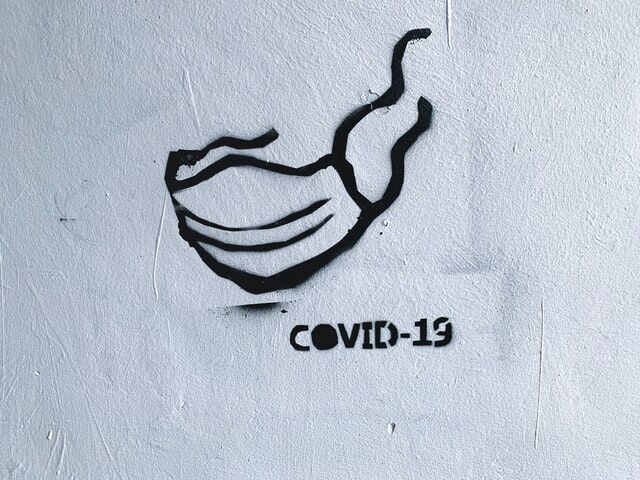Biden Administration investigates mask mandate ban in Iowa
The CDC released updated guidance encouraging even those who are fully vaccinated to wear masks in areas of high or substantial transmission and in public indoors.
September 8, 2021
Iowa is one of five states being investigated by the Biden Administration for civil rights violations regarding mask mandate bans. Gov. Kim Reynolds signed a law May 20 banning Iowa school districts from implementing mask mandates, as well as cities and counties from requiring masks in businesses.
The Education Department stated the ban in Iowa (as well as in South Carolina, Oklahoma, Tennessee and Utah) does not allow school districts to provide safe, in-person learning for students at greater risk of illness from COVID-19.
Gov. Reynolds responded to the investigation in a statement last Monday by defending her law and said the Biden Administration is conducting the investigation for political reasons.
“Iowa was able to reopen schools safely and responsibly over a year ago,” said Reynolds. “President Biden and his team know this, yet they’ve decided to pick a political fight with a handful of governors to distract from his own failures — Afghanistan, the border, inflation and more.”
While Reynolds believes the investigation is political, Iowa state Sen. Herman Quirmbach (D-23) said the ban itself was a political move.
“First of all, I voted against [the mask mandate ban],” Quirmbach said. “I think it’s a knee jerk reaction on the part of Republicans that’s more designed to energize their right wing base at the expense of the health of school kids in general. Kim Reynolds and the Republican leadership in the legislature is playing politics with the health and safety of young children.”
A group of Iowa parents whose children are at higher risk has filed a lawsuit against the state for discriminating against students with disabilities by excluding them from a full education. One of the plaintiffs in the lawsuit against the state is the American Civil Liberties Union (ACLU). Susan Mizner, the director of the ACLU’s disability rights program, said that they share the same goal as the administration of ensuring a safe and effective education for every student.
Education Secretary Miguel Cardona said in a statement that they had received complaints from parents across the country about the bans putting their children at risk and preventing them from accessing an equal education.
“The Department will fight to protect every student’s right to access in-person learning safely,” Cardona said, “and the rights of local educators to put in place policies that allow all students to return to the classroom full-time in-person safely this fall.”
Reynolds also stated her opposition to mandates in a press conference Sept. 2. She stated that there is an online option for kids at higher risk and that masks are still an option for parents and students who choose them. Mizner said that the online options do not fulfill the educational needs of the students and are often just prerecorded lessons.
“The ADA and the Rehab Act require that students with disabilities have equal access to their education,” Mizner said in an email interview. “Online school is a poor substitute for in-person instruction. It therefore does not give children with disabilities equal access to their education.”
Mizner also said the state’s proposal that students with disabilities can wear masks to protect themselves is a misunderstanding of how COVID-19 spreads. She said that unless everyone is wearing a mask, schools can become super spreader sites.
Dirk Deam, teaching professor for political science at Iowa State, said that if the investigation finds Reynold’s ban to be in violation of a federal law or guideline, then the federal concern would prevail.
“In this particular case it would have to do with acts of Congress that protect certain disadvantaged students,” Deam said. “All of those federal artifacts of law are supreme over the state and the states therefore have to yield, their law is no longer valid.”
Reynold’s ban only applies to K-12 schools, yet universities in Iowa are not implementing the same masking policies as last year. Quirmbach says that the Board of Regents won’t allow them to, and he believes that this may be because the Board of Regents is facing political pressure from Reynolds.
“The whole structure of having a board of regents sitting between the universities and the legislature is to protect the independence of the universities,” said Quimbach. “The Board of Regents isn’t doing their job on this issue.”
The Iowa Board of Regents had no comment on the investigation. Eric Smidt, Director of Communications for the Ames Community School District, said that it would be inappropriate for the district to comment on the investigation as they are not directly involved with it, but they strongly encourage mask-wearing.







